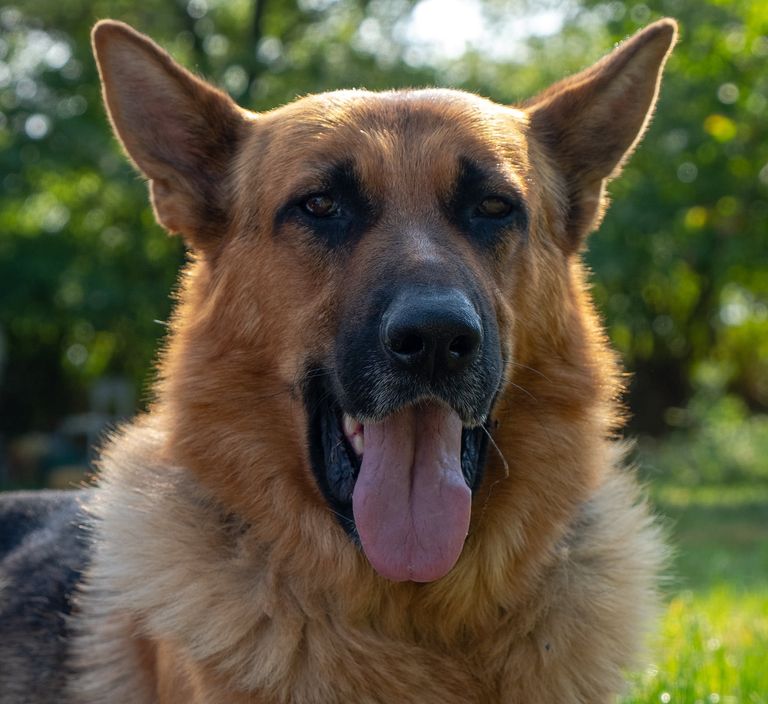The phrase “a dog is man’s best friend” is not merely a cliché; it is an acknowledgment of the deep and enduring relationship between humans and dogs that has evolved over thousands of years. This bond, rooted in loyalty, companionship, and mutual benefit, transcends cultural and geographical boundaries, making it one of the most universal relationships in human history. But why, out of all the animals in the world, have dogs earned the title of “man’s best friend”? To understand this, we must explore the historical, emotional, and social dimensions of this connection.



A History of Partnership
The human-dog bond dates back at least 15,000 to 30,000 years, with evidence suggesting that early humans began domesticating wolves, the ancestors of modern dogs, for protection and assistance in hunting. Early humans and wolves shared a symbiotic relationship—humans provided food, and wolves offered their strength and alertness. Over time, this relationship deepened, and the once-wild wolves evolved into the domesticated dogs we know today.
The loyalty displayed by dogs was key to their enduring partnership with humans. Unlike other domesticated animals, such as cats or horses, dogs have always had a special role that involved close personal interaction. They helped humans not just in practical ways but in emotional ones, providing companionship during times of loneliness, and safety during times of danger. This partnership allowed humans to thrive, and in return, humans offered care, shelter, and food, solidifying a bond that continues to flourish.


Unconditional Loyalty and Emotional Support
Perhaps the most compelling reason why dogs have earned the title of “man’s best friend” is their unwavering loyalty. A dog’s loyalty is unconditional, not dependent on material possessions or external circumstances. Regardless of a person’s mood, financial status, or appearance, a dog’s affection remains constant. This is a rare and cherished trait, especially in a world where human relationships can be complex and conditional.
Dogs are also incredibly attuned to human emotions. Studies have shown that dogs can read facial expressions, respond to tone of voice, and even mirror the feelings of their owners. Whether someone is experiencing joy, sadness, or stress, a dog’s presence can offer immense comfort. This emotional support is particularly valuable for individuals struggling with mental health issues like anxiety or depression. The simple act of petting a dog can lower cortisol levels (the stress hormone) and increase the release of oxytocin, a hormone associated with bonding and happiness. Dogs offer a kind of emotional care that is both instinctive and profound, making them invaluable companions in times of need.


Companionship and Social Connection
In a world where technology often isolates us from one another, dogs provide a bridge to connection. Owning a dog encourages physical activity and outdoor time, often leading to interactions with other dog owners and fostering a sense of community. Dog parks, walking paths, and even pet-friendly events serve as gathering places where people can bond over their shared love of dogs. This social aspect of dog ownership is particularly beneficial for those who may struggle with social isolation or loneliness.
Moreover, dogs offer a sense of purpose. Taking care of a dog requires responsibility, which can be life-enhancing, especially for people going through difficult transitions such as grief or retirement. The daily routine of feeding, walking, and caring for a dog can provide structure and a sense of fulfillment, reminding us that we are needed and valued.


Protection and Service
Historically, dogs have not only been companions but protectors. Their keen sense of smell, hearing, and ability to detect danger have made them reliable guardians for human homes and communities. In ancient times, dogs guarded livestock and human settlements, alerting their owners to potential threats. Today, dogs continue to play critical roles in law enforcement, search and rescue missions, and as service animals for people with disabilities.
Service dogs are perhaps the ultimate example of the loyalty and utility dogs offer humans. Whether guiding someone who is visually impaired, alerting an individual with epilepsy to an impending seizure, or offering emotional support to veterans suffering from PTSD, dogs can perform tasks that greatly improve human quality of life. These dogs are not only helpful in a practical sense but often become an emotional anchor for the people they assist, reinforcing the idea that dogs are more than just pets—they are partners in every sense.


A Bond Beyond Words
What makes the dog-human bond so special is its wordless nature. Unlike human relationships, which are built on language, the connection between a dog and its owner transcends words. It is communicated through body language, eye contact, and shared experiences. A dog’s silent presence can often speak louder than words, offering solace during times of pain or grief. This quiet understanding fosters a unique bond that few other relationships can match.



Conclusion
The phrase “a dog is man’s best friend” captures the essence of a relationship that is ancient, complex, and beautiful. It speaks to the loyalty, emotional support, and companionship that dogs offer, qualities that have made them an integral part of human life for millennia. In a world that is constantly changing, the steadfast friendship between humans and dogs remains one of the few constants—a bond built on love, trust, and an unspoken understanding.







